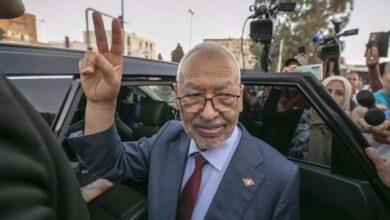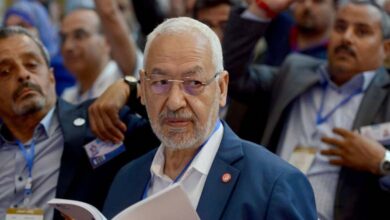Turkey Strengthens its influence in Libya by signing two military agreements with Dbeibeh

Libya’s Prime Minister of National Unity, Abdul Hamid Dbeibeh, signed two agreements with Turkey’s Defense Minister on Tuesday, following an agreement signed in 2019 that angered European countries.
Observers believe that the signing of the two agreements is a dangerous development for the Turkish interventions in Libya, especially since they coincide with the start of the dialog between the United Nations envoy to Libya, Abdoullah Batelli, with the Libyan actors to find a way out of the crisis that has lasted for more than ten years, and to find a basis of understanding to hold elections after Dbeibeh failed to deliver the country to the elections on the 24th of last December.
These observers point to Dbeibeh continuing to pledge Libya to Turkey in order to gain its permanent support to continue in power, and also in case the Libyan army would resume its offensive against Tripoli, especially after Field Marshal Khalifa Haftar’s repeated calls for Libyans to rise up against the political class and his assertion that the army is ready for any movement.
The Dibiba government’s administration released a statement saying the agreements included “protocols for the implementation of the security agreement” signed that year by the authorities in Tripoli, under which a violent attack on the capital by Libyan army chief Field Marshal Khalifa Haftar was repelled.
The statement did not give further details.
The 2019 deal saw Turkey claim large gas-rich areas in the eastern Mediterranean, angering Greece, France and the European Union.
Shortly thereafter, the delivery of Turkish drones to Tripoli-based forces altered the course of the battle and then defeated Haftar’s Russian- and United Arab Emirates-backed forces.
According to the statement, which was accompanied by pictures with Turkish Defense Minister Hulusi Akar, another deal signed by Dbeibeh on Tuesday was aimed at “strengthening the capacity of the Libyan air force by using Turkish expertise.” Dbeibeh was in Turkey to visit a defense exhibition.
The Turkish Minister of Defense said that his country is not a foreign power in Libya and that it is determined to continue what he described as military training, assistance and advisory activities in clear violation of the Geneva Accord and the international agreements on Libya.
The signed protocol is part of the co-operation agreement on the articles of the 2019 memorandum of understanding for security and military co-operation between the Libyan and Turkish sides, said Mohammed Hammouda, spokesman for the outgoing government, via his official Facebook page.
Hammouda said the protocol stipulated the formation of the Higher Defense Committee for Libyan-Turkish Cooperation and the Military Cooperation Committee, and specified the modalities of their work and tasks, as well as the composition of their units, in addition to specifying areas of cooperation between the two countries.
The protocol includes “the exchange of training, consultations, expertise and information in order to combat terrorism and organized crime, border security, support of military sectors with advanced equipment and devices, support in the field of military medical services with the provision of state-of-the-art equipment, and co-operation in the field of mapping”, he said.
Hammouda said the two countries signed a protocol for modern aviation training, and specified the principles and responsibilities related to aviation training, in addition to the conditions on both sides related to candidates and participants in these exercises.
Libyan political and public circles warned that these agreements, which are designed to divide Libya and mortgage a portion of its territory to Turkey, do not stop military involvement on more than one front.
Libyan political circles expect that regional and international attitudes toward Libya will change in the coming weeks, following the signing of the two agreements with Turkey that will change the balance of power in the region.
The two military agreements are in addition to previous violations by the tank, after it signed a memorandum of understanding with the Turkish government on oil and gas, which is in contravention of the Geneva Accord and international agreements.
The agreements come three weeks after Turkish Foreign Minister Mevlüt Çavuşoğlu signed an agreement in Tripoli allowing for oil and gas exploration in Libya’s Mediterranean waters.
This was also built on the 2019 agreement, which delineated the two countries’ maritime borders but provoked outrage in Greece and Cyprus.
The deal was rejected by a rival administration in the war-torn east of the country, as well as neighboring Egypt, both of which argue that Dbeibeh’s term as Libya’s prime minister has ended.
Dbeibeh came to power as part of a UN-led peace process following the battle that erupted after Haftar’s offensive on Tripoli.
“Since the fall of Muammar Qaddafi’s regime in 2011, Libya has suffered from divisions and political conflict.” “Two governments are competing for power: one based in Tripoli (west) under Dbeibeh since early 2012, and the other under Fathi Bashagha, appointed by the House of Representatives in March.”












